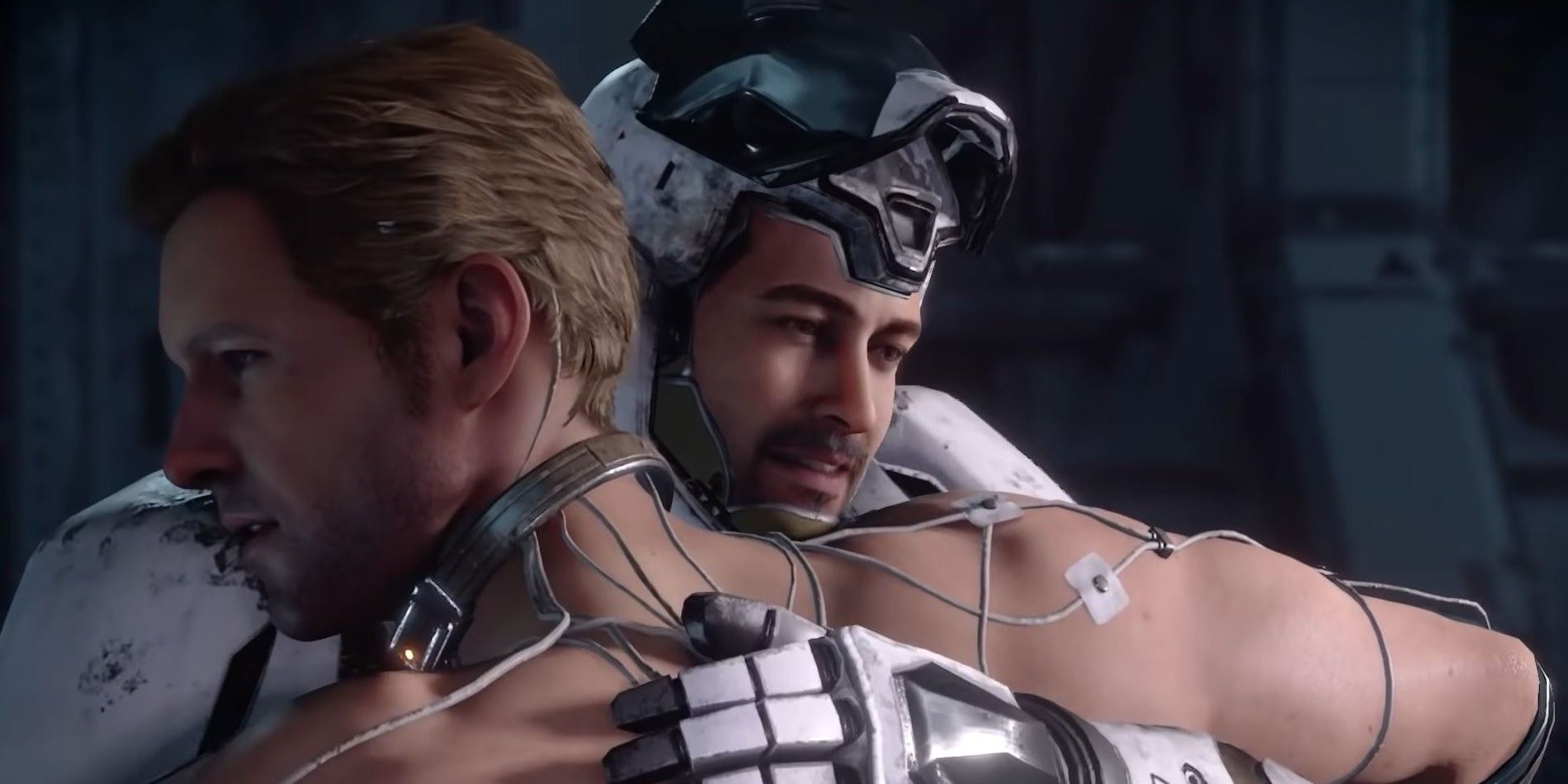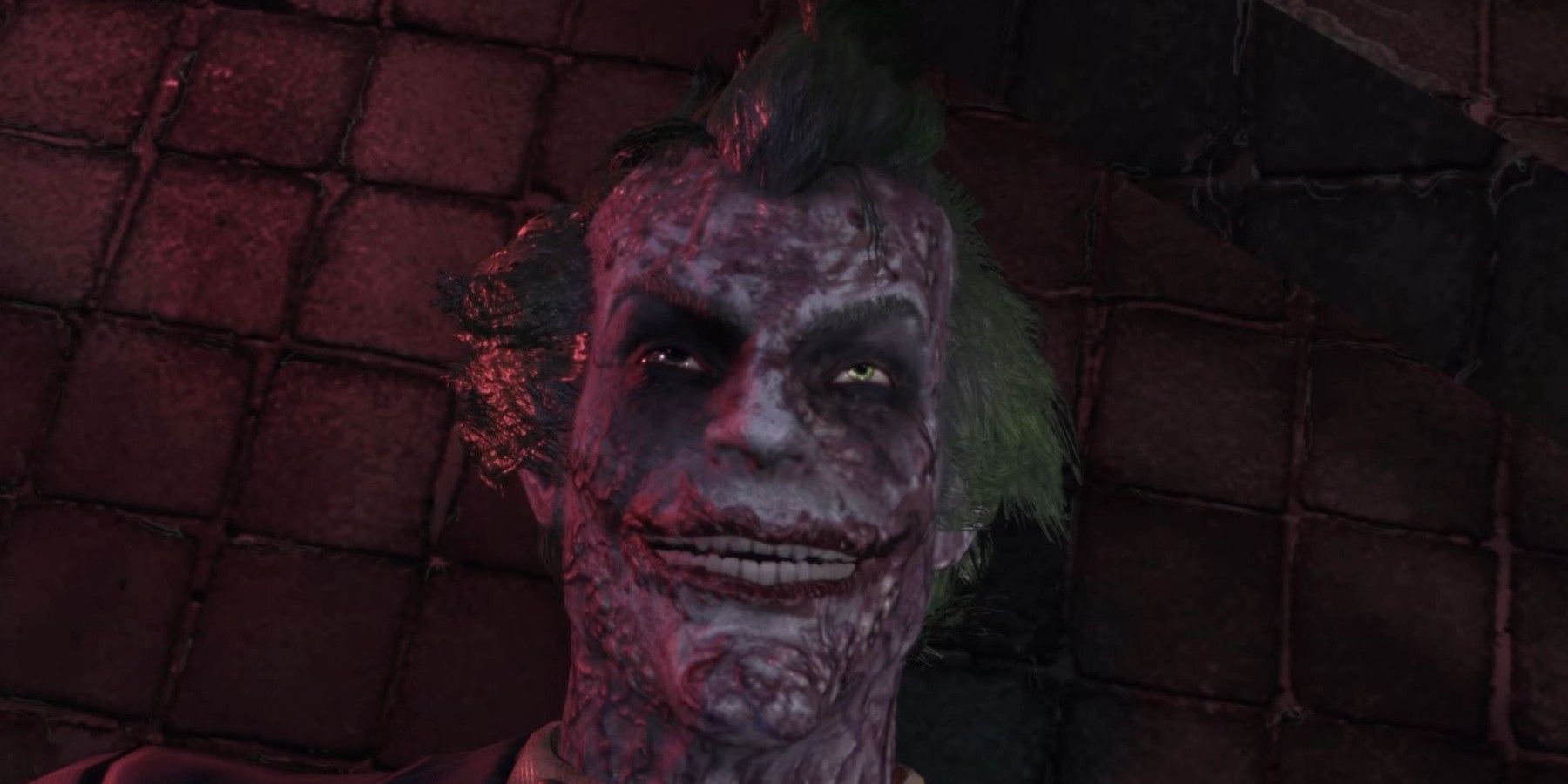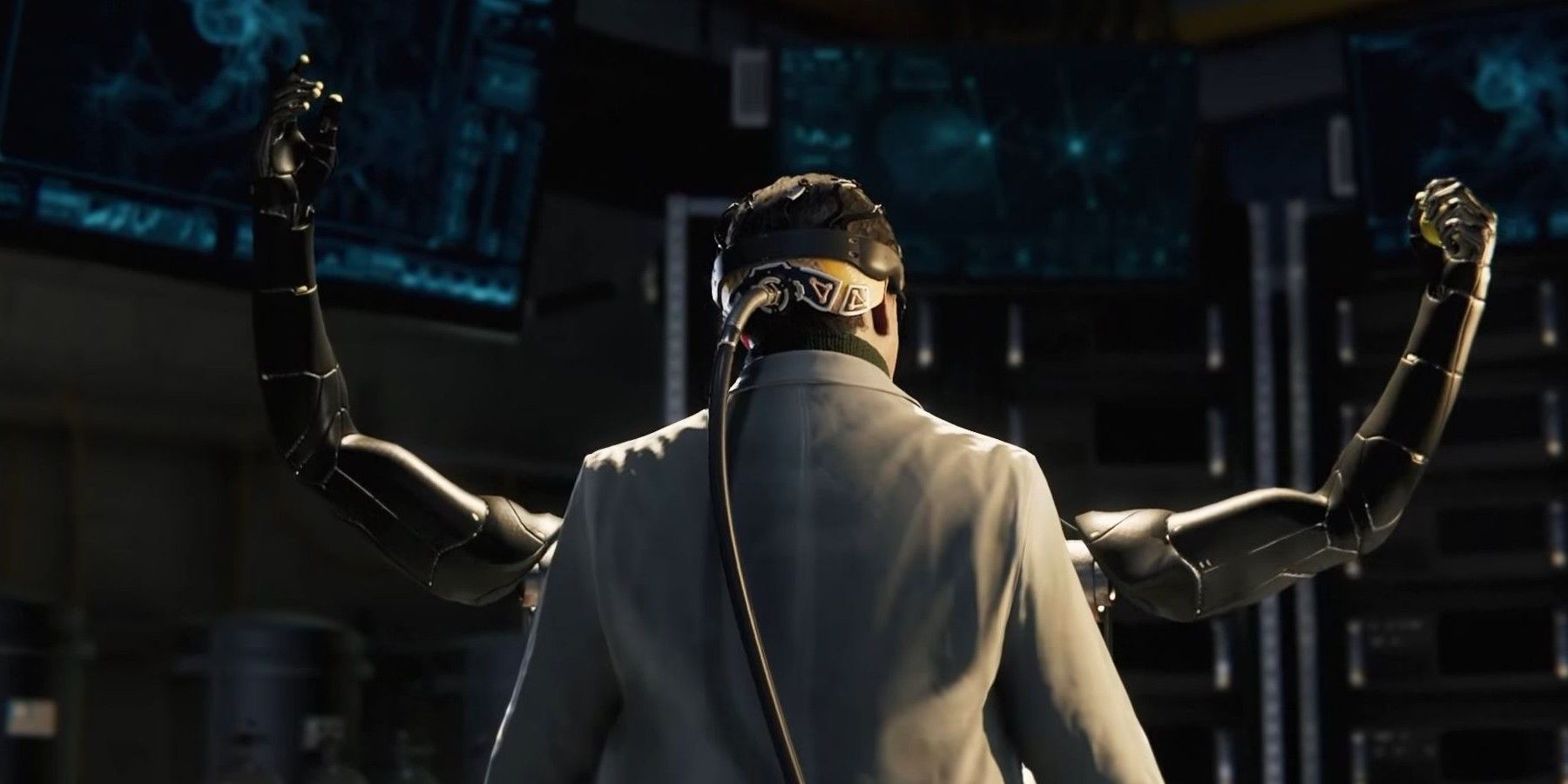Long-running comic series often have complex lore and numerous supporting characters, but superhero game series like Batman: Arkham and Marvel’s Spider-Man were well-received adaptations. Square Enix's Marvel’s Avengers appears, on the surface, to follow in the footsteps of those games in terms of storytelling, but it received a lukewarm response from fans and critics alike. The blame for Marvel's Avengers' shortcomings falls mostly on a gameplay style at odds with the story. Avengers has a solid narrative arc, but such arcs require conclusion. The game style of a live-service title supports unending conflict as the perpetual status quo. Avengers' gameplay undermined the story's impact instead of strengthening it.
[WARNING: Spoilers for Marvel's Avengers, the Batman: Arkham series, and Marvel's Spider-Man below]
The story of Marvel’s Avengers has generally been praised more than its online multiplayer elements and live-service monetization, and it's also where Avengers has the most in common Batman: Arkham and Spider-Man. In 2009, Batman: Arkham Asylum introduced a successful model, featuring an original version of the Batman setting not beholden to any specific line of comics, films, or television. Arkham Asylum's characters and backstory elements largely stayed true to familiar Batman conceits, but by creating an original continuity, it could tell more impactful and surprising stories.
The sequel, Batman: Arkham City, featured the death of the Joker. Arkham Knight, the series’ most recent entry, was then able to reimagine the return of Jason Todd and publicly reveal Bruce Wayne's identity, following that up with Batman's evident death. These major dramatic events would not be possible for games tied into the continuity of a film or comic book series. Such games are typically side stories, with little impact on the ongoing plot, or direct adaptations of stories already told elsewhere. By giving the "Arkhamverse" its own story continuity, developer Rocksteady ensured the most important stories were happening in-game.
New Superhero Continuities Allow For Riskier Storytelling
In 2018, Marvel’s Spider-Man followed the Arkham pattern, establishing a unique world for its version of Spider-Man. Rather than bold status quo changes, Spider-Man's fresh continuity allowed the game to create a deeply personal link between Spider-Man and Dr. Octopus, making Octavius' mental breakdown more tragic and poignant. It also introduced a new version of Miles Morales, not indebted to the original Ultimate Marvel version of the character or any subsequent comic book continuity shifts, who went on to star in Spider-Man PS4's acclaimed sequel.
From a high-level view, the Marvel’s Avengers campaign follows the same format laid out by the beloved Arkham and Spider-Man games. The characters and villains are largely familiar, but the game’s new continuity allows it, like the Batman: Arkham titles, to tell a story with unexpected dramatic shifts from canon, such as the Avengers disbanding and falling into disgrace for years following a Terrigen-related disaster. This provides the context for Marvel's Avengers' strong story, as Ms. Marvel, a young Inhuman granted power from the same incident, seeks out the former Avengers and rebuilds the team, in a narrative that highlights personal connections like Spider-Man. They then learn the truth of the events that shattered their bond and redeem themselves for what they saw as a tragic failure.
Live-Service Gameplay Hinders Personal Story Connections
Unlike Spider-Man and Batman: Arkham's open worlds, Marvel's Avengers follows a mission structure. Those games allowed players to experience comic-inspired renditions of Gotham and New York City, and this exploration helped their worlds feel more immersive. The Avengers are a more global operation, so a globetrotting mission structure might be appropriate, but the addition of numerous multiplayer-centric elements caused the campaign to feel like a long tutorial rather than its own complete experience.
A game needs to decide what its focus is going to be, and the story and gameplay can be molded to support that vision. By aiming for a live-service model, Marvel's Avengers hurt its story with gameplay that did not compliment it well. Constant reminders of RPG-style progression suited for online games, stat-increasing equipment, and a gameplay engine ill-suited for a single-player story experience, all work to hinder the impact of an otherwise competent, original continuity story. Unlike the Batman: Arkham and Marvel’s Spider-Man games, Marvel’s Avengers prioritized the perpetual endgame, and buried its own story in the process.



